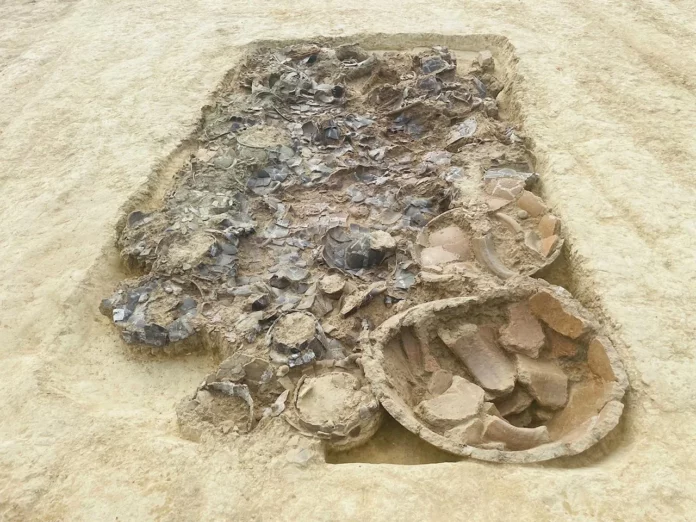In a remarkable archaeological breakthrough, researchers from the University of Bologna have uncovered a 2,600-year-old princely tomb in Italy’s Corinaldo Necropolis, located in the Ancona province. This discovery follows the significant find of the “Prince of Corinaldo” in 2018, shedding new light on the ancient Picentes civilization and their elite society.
A Significant Discovery
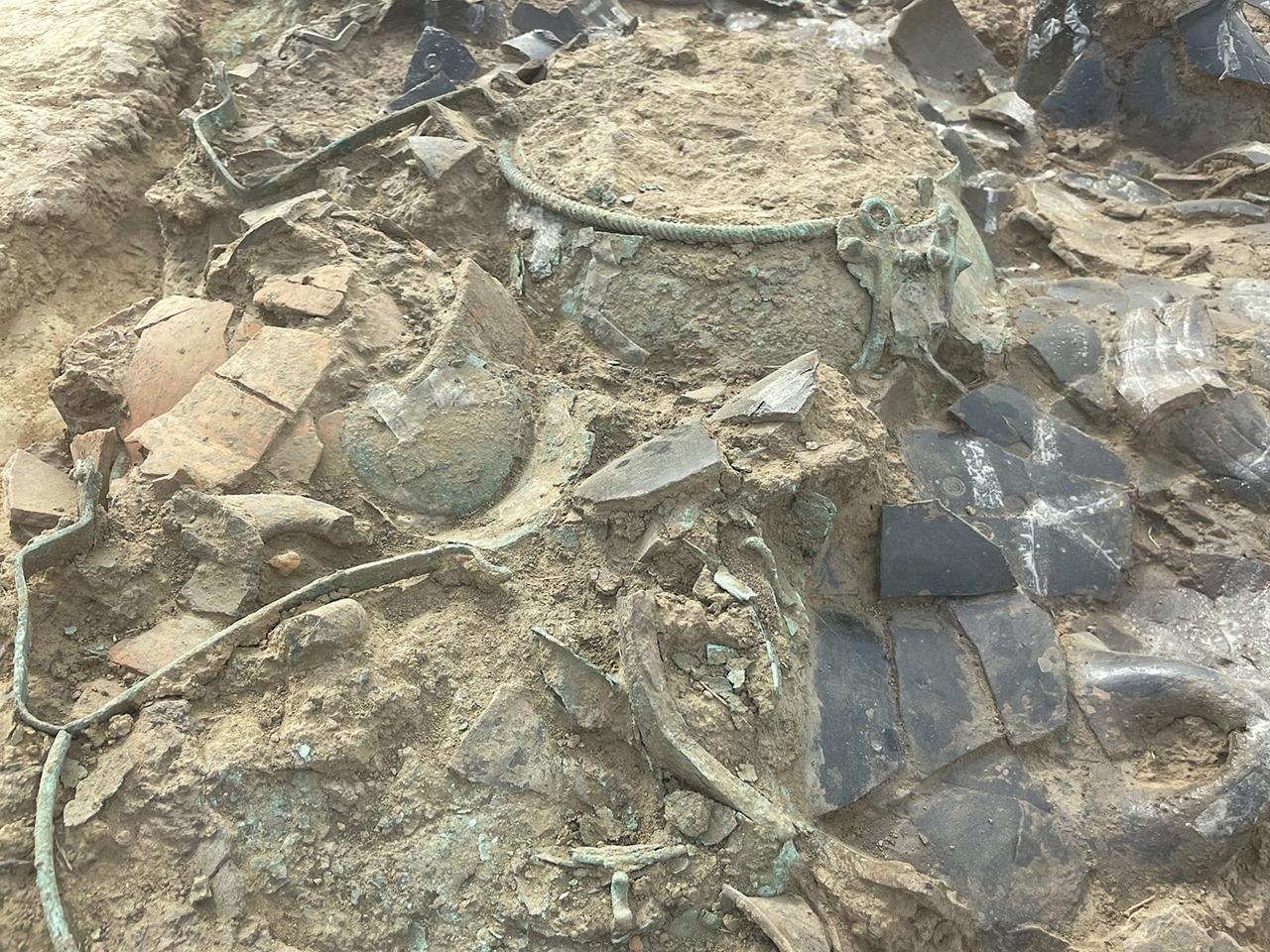
Led by Dr. Cecilia Carlorosi and Ilaria Venanzoni, the excavation team unearthed a quadrangular tomb situated at the center of a large circular pit. The tomb, measuring approximately 3.8 by 2.2 meters, was filled with over 150 intricately crafted artifacts. Among these treasures were a two-wheeled chariot, a bronze helmet, cauldrons, and exquisitely decorated vessels. These artifacts point to a sophisticated funerary banquet, indicating that the tomb’s occupant was a high-ranking individual of great significance.
The Historical Context
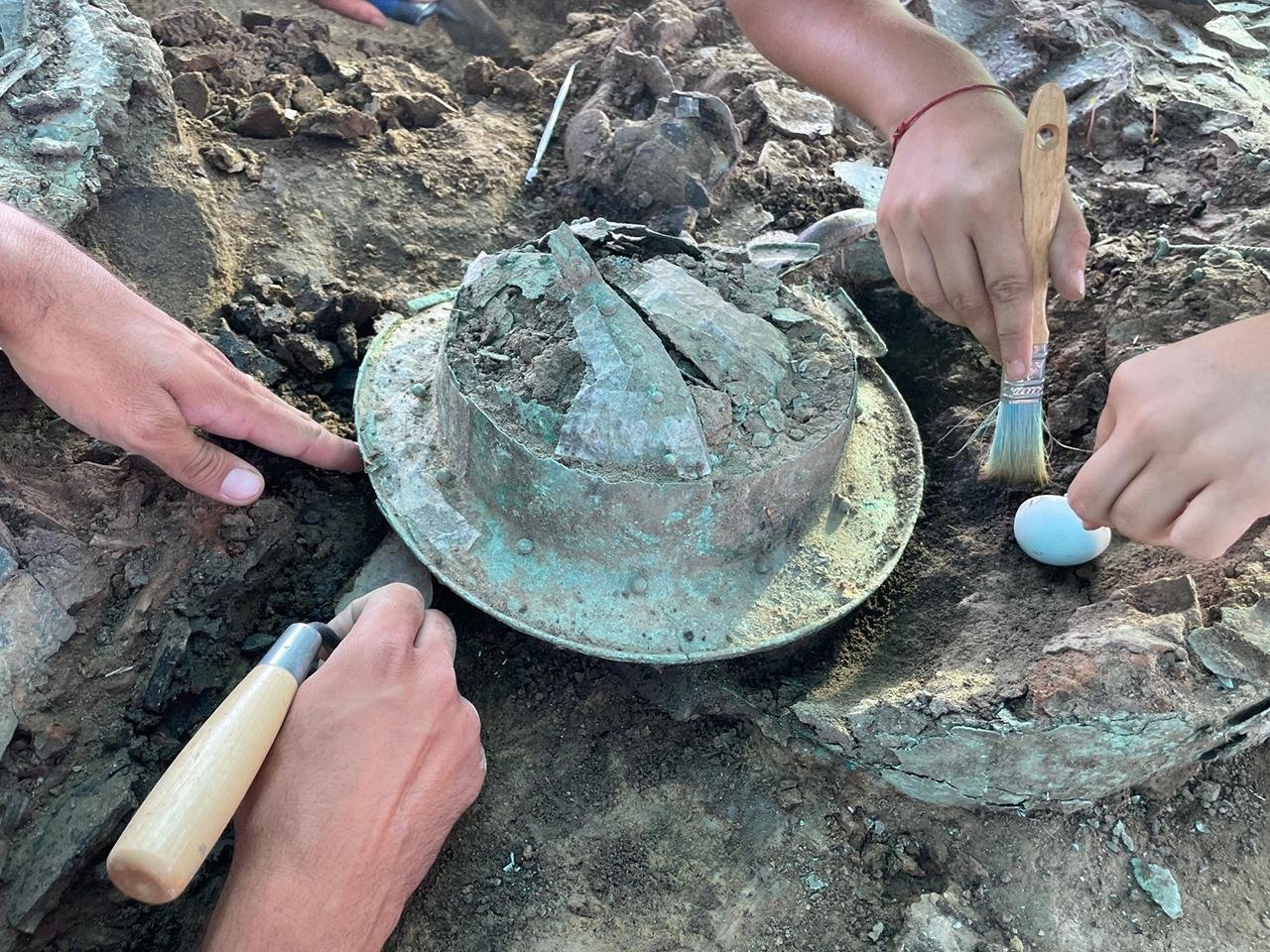
The burial site dates back to the 7th century BCE and is linked to the Picentes, an ancient Italic people who inhabited the Adriatic coast from the 9th to the 3rd century BCE. Known for their extensive trade networks, the Picentes interacted with neighboring cultures such as the Etruscans, a connection evidenced by several Etruscan-origin artifacts found within the tomb.
The Corinaldo Necropolis, located in Nevola, has been an active site under the ArcheoNevola Project since 2018. This project is overseen by the University of Bologna’s Department of History, Culture, and Civilization in collaboration with the Municipality of Corinaldo and the Superintendent of Archaeology Fine Arts and Landscape for the provinces of Ancona and Pesaro Urbino.
Recent Findings and Their Significance
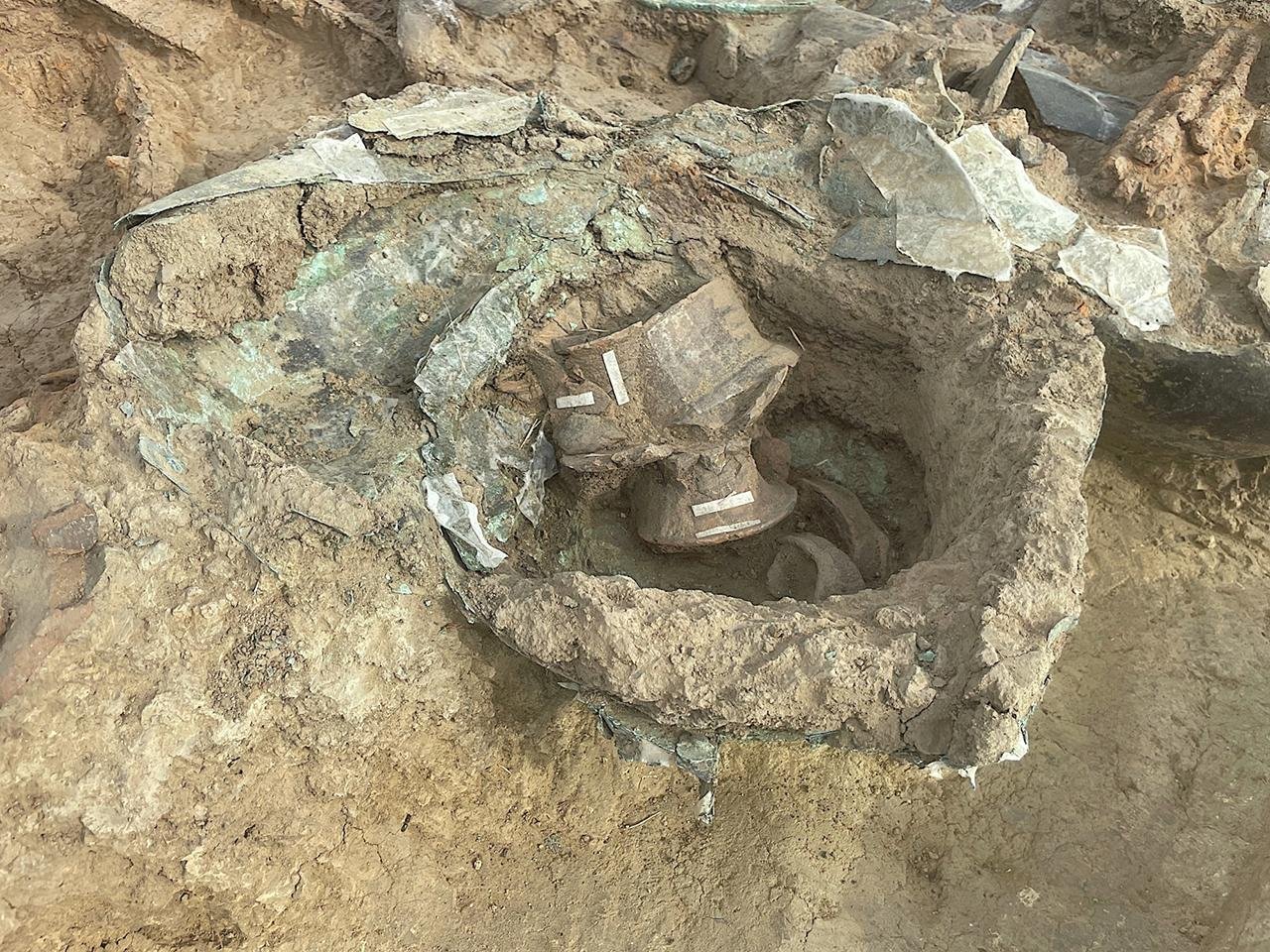
The recent excavation revealed a large circular ditch with an original diameter of 30 meters encircling the quadrangular tomb. Discovered artifacts include skewers, an iron axe used for meat cutting, and various pottery items for serving food and beverages—items indicative of a grand funerary banquet. These findings underscore the high social status of the tomb’s occupant and provide insights into the elite lifestyle of the Picentes.
Mayor Gianni Aloisi of Corinaldo emphasized the importance of this discovery, stating, “Corinaldo can now claim the title of ‘land of the princes.’ This discovery confirms the historical and cultural value of the Nevola archaeological area and allows us to know, and perhaps rewrite, the history of our community.”
The Picentes and Their Legacy
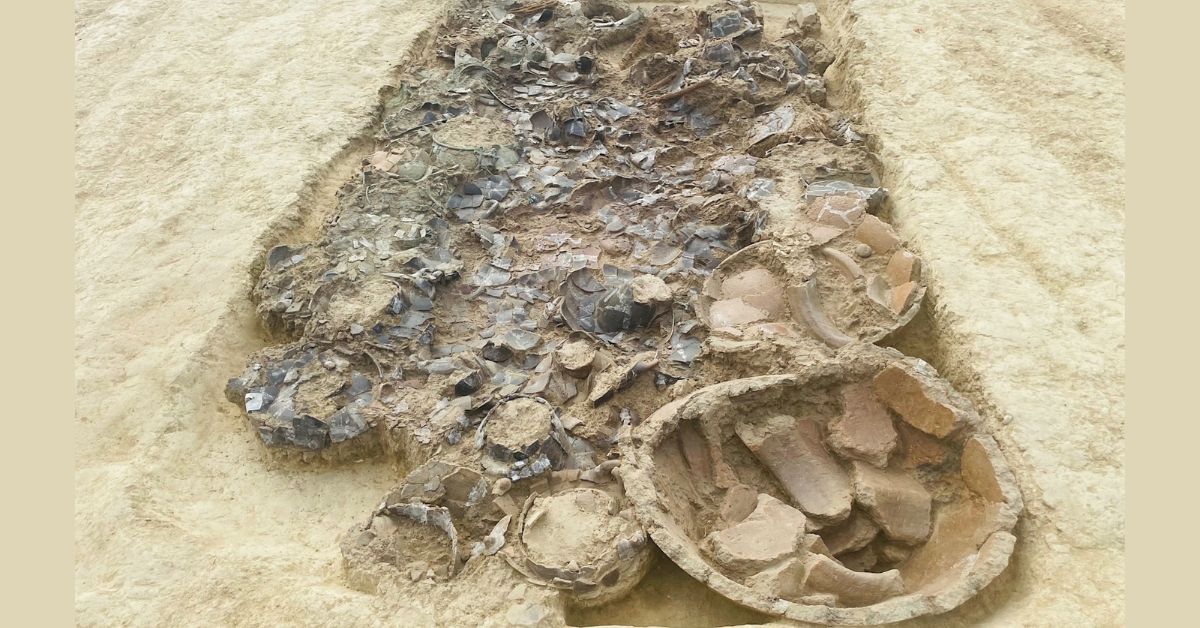
The Picentes, who were primarily concentrated in Novilara in the north and Belmonte in the south, were known for their wealth and extensive trading connections. Their territory, Picenum, was annexed by Rome in 268 BCE. The artifacts uncovered in the tomb provide a glimpse into the aristocratic lifestyle of the Picentes, reflecting their daily life, habits, and interactions with Etruscan culture.
Public Presentation and Future Prospects
The recent discoveries will be presented to the public, with plans for visits to the excavation site to highlight the educational and historical significance of the Corinaldo Necropolis. Mayor Gianni Aloisi noted that once the artifacts are consolidated and restored, they will be displayed in a museum area accessible to the public, allowing a broader audience to appreciate the rich history of the Picentes.
Conclusion
The discovery of the 2,600-year-old princely tomb in the Corinaldo Necropolis offers a fascinating glimpse into the ancient Picentes and their elite society. This significant find not only enriches our understanding of the past but also underscores the ongoing importance of archaeological research in uncovering and preserving historical treasures. As the artifacts are further studied and displayed, they will undoubtedly provide valuable insights into the lives and culture of this ancient Italic people.
